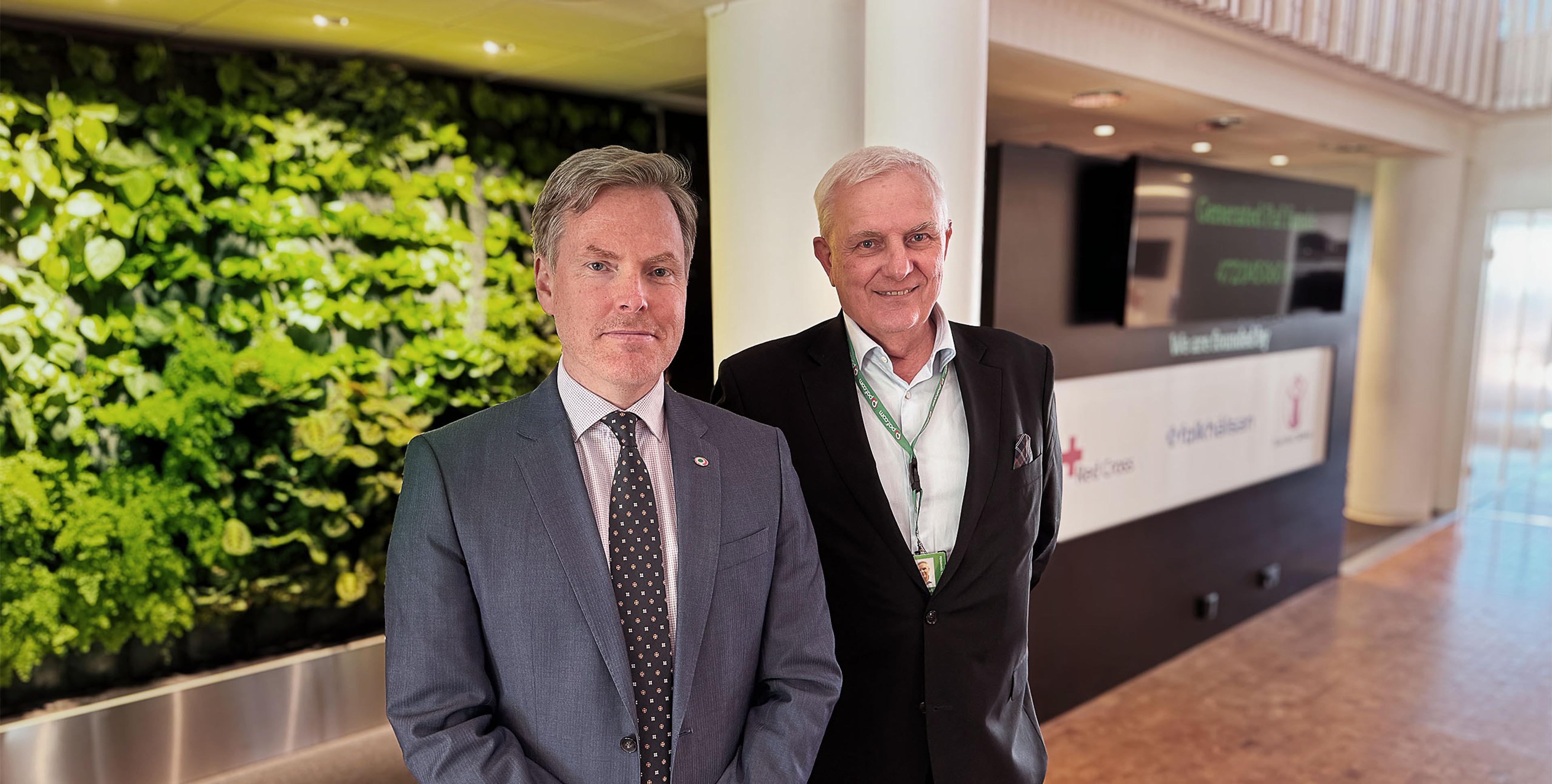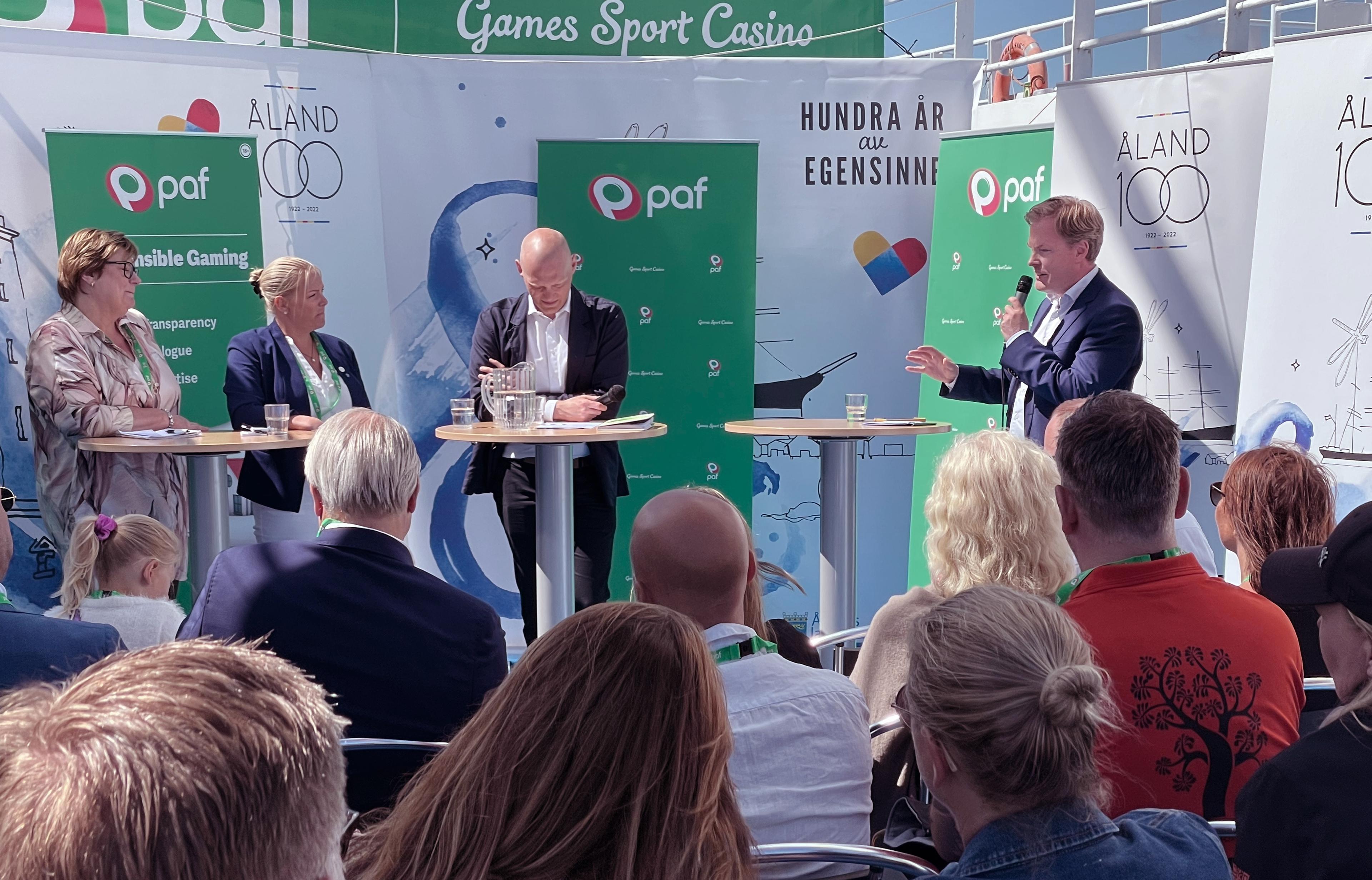Ban gambling advertising and raise the taxes
Paf presented its own proposal for a gaming policy program in Sweden. Raising the gambling tax, banning large parts of the gambling advertising and stopping the exposure of gambling adverts in connection with sports are some of the points in the program.
Paf participated in the annual event Almedalen Week in Sweden, by arranging a gaming policy discussion under the heading “The industry we love to hate”. Members of the Parliament from the Centre Party, the Moderates and the Sweden Democrats participated in the discussion. All politicians agreed that the licensed online gaming market in Sweden is better than when the market was unregulated, even if adjustments are needed.
“It was a broad majority who adopted the gaming law and we established the law on what we knew right then, in order to get law and order on the gambling market. Then of course you need to try to be as clear as you can so the law can be interpreted well,” says Catarina Deremar, Member of Parliament for the Centre Party.
“Our party supports the regulation we have today and we want to appoint a proper investigation after five years to fix what is needed,” says Angelica Lundberg, Member of Parliament for the Sweden Democrats.
“It is a, as good as it gets, regulation we have today. I would give it 2.5 points on a five-point scale. You need to adjust the margins in it,” says Niklas Wykman, Member of Parliament for the Moderates.
“You cannot sell light beer to alcoholics”
Paf launched a proposal for a gaming policy program during the seminar where a number of points would mean tough changes in the Swedish gaming market. Increased gambling tax from 18% to 21% was one of the proposals, which none of the panellists were directly positive about, even though neighbouring country Denmark has chosen that path in its regulation.
“I think that gambling advertising is one of the biggest reasons for the industry’s bad reputation. Is it not time that we do something about it in Sweden like many other countries have done. The increased gambling tax can also completely compensate for possible loss of sponsorship money to the sports organisations,” says Paf’s CEO Christer Fahlstedt.
Several of the politicians, on the other hand, wanted to differentiate between the advertising that may be done for various forms of gambling, where lotteries and betting are often highlighted as less dangerous. A comment that Paf’s CEO Christer Fahlstedt does not agree with.
“Gambling is still always gambling and we can draw parallels to alcohol, you cannot sell light beer to alcoholics,” says Christer Fahlstedt.
Pafs Gaming Policy Program
- Expand Spelpaus to also work preventively by centralising the players limits so that it applies equally to all operators.
- Concretize and legislate the duty of care with clear quantifiable limits and measures – then follow up on it!
- Prohibit gambling advertisements on TV and outdoors.
- Prohibit sponsorship and exposure of gambling ads in connection with sports.
- Increase the gambling tax from 18% to 21% and use the increased income to compensate for the loss of sponsorship money for the sports organisations.
Published: 08 juli 2022
News with same tag

Climate Financing – a Key Part of Paf’s Environmental Efforts
Paf has engaged in climate financing every year since we began measuring our climate impact. Climate financing helps accelerate the transition to more environmentally friendly practices. This year’s contribution was directed to a project in South America.
Published: 12 juni 2025

Finnish woman wins €1.5 million at Paf
A Finnish woman from southern Finland won €1,497,900.48 on Paf's gaming site. The winner played the game Arabian Nights on Paf.com with a stake of 50 cents. Paf called the winner to congratulate her.
Published: 28 maj 2025

It was a strong year
Paf performed well in 2024, despite a slight decline in earnings. Paf's open customer segment demonstrates that it is possible to be a sustainable entertainment company with decisive loss limits to prevent excessive gambling.
Published: 20 maj 2025
